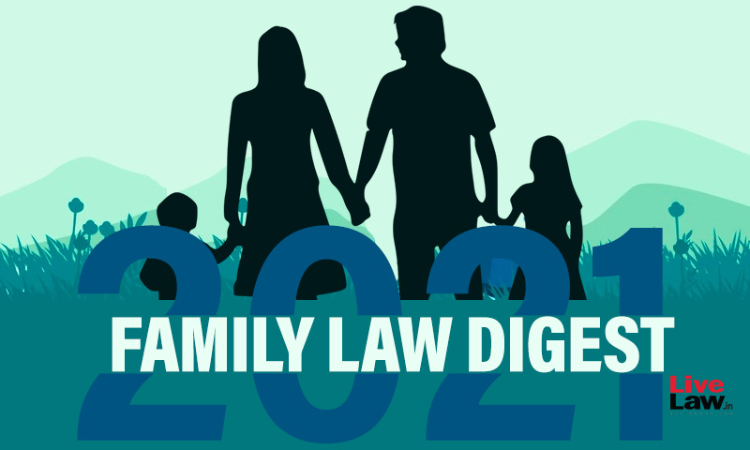All India Family Law Digest 2021 : Judgments Of Supreme Court & High Courts
Akshita Saxena
29 Dec 2021 12:10 PM IST

Next Story
29 Dec 2021 12:10 PM IST
As the year 2021 is coming to an end, LiveLaw brings to you an yearly Round-up of important updates in the subject of Family Law from the Supreme Court and various High Courts. This yearly digest includes 100 orders and judgments, divided into 18 different heads.Orders Pertaining to Marriage, its Registration & its Validity 1. Consent Of Family, Community Or Clan Not Necessary Once...
